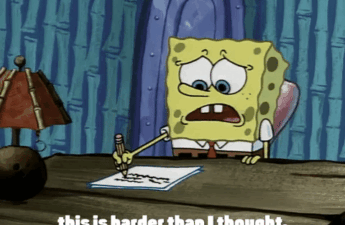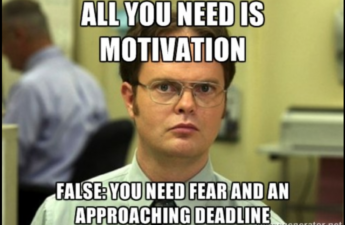High schoolers tend to write passive constructions in academic writing, often needing to fulfill assigned word counts requirements in order to earn the highest grade. Students can often dilute their intended meaning with verbosity.
Yet, for college essays, students need to write in an active tense, self-assured and self-aware, as they are essentially writing their autobiography.
However, teenagers often write sentences animating inanimate objects, which ultimately “allow” them, “teach” them, “provide” something that is not possible in reality.
A few examples:
“Gaining new perspectives, I will learn and grow as a student allowing me to enhance creativity and strengthen my writing.”
To analyze, how does one “gain”, as in possess, a “perspective”? And, what does “growing as a student” mean? And, the phrase “learning as a student” redundant, since what else does a student do, but learn? Lastly, how does such “growth”, which is an inanimate state, then permit, as in “allow” the student to “enhance creativity”, which is inherent to any person?
In another example, a student writes:
“Furthermore, [X College] will provide me with endless opportunities to expand my horizons and gain confidence in my competence.”
Again, in analyzing the sentence: a college is an organization, an entity, that cannot provide anything, since its inanimate. Also, the writer simply flatters the university, stating there’s numerous opportunities, but does not indicate whether they will utilize such opportunities. Thus, the writer loses the chance to assert how they’ll act or contribute to the life of the university if admitted.
Additionally, writing passively uses more words, which is the antithesis of the strict word counts, where the student will not be able to insert more words than programmed into the online application text box.
By contrast, when writing in an active voice, students connote confidence, asserting clarity about their experiences. The admissions officer, then, is more likely to understand the student, which potentially enhances the applicant’s evaluation.
However, to be assertive, when writing, the student often confronts a lack of understanding of themselves or their experience which can be humbling or downright embarrassing—only adding complications to the college essay writing process.
Thus, many students need additional time and support to process their insecurities, which parents may misconstrued as “procrastinating”, thus inciting anxieties about looming deadlines, and sparking other tensions.
Finally, in practicing how to actually express one’s ideas, students will need to revise their writing significantly through more drafts than expected. Thus, for many students, actually learning the editorial process, can also be sobering, especially for those who’ve earned “All A’s” in English, believing themselves a capable writer—yet another complexity of the labyrinth of college essay writing.
Creative Marbles was founded by teachers who appreciate helping students craft insightful essays, first in the academic classroom, now as part of the complex college admissions process. For more information, please contact us



